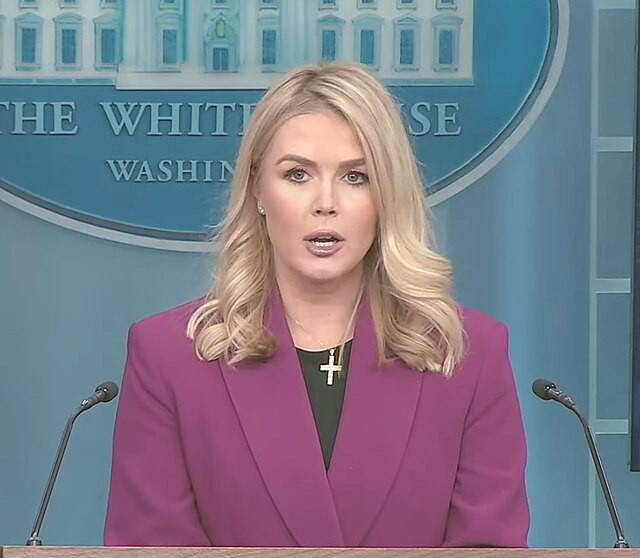White House Press Secretary Karoline Leavitt ignited a wave of backlash across Washington this week after defending President Donald Trump's decision to call Bloomberg correspondent Catherine Lucey "piggy," framing the remark as evidence of transparency rather than disrespect. The exchange, which occurred aboard Air Force One as Lucey pressed the President on the release of the Jeffrey Epstein files, triggered widespread criticism from journalists and press freedom advocates who accused the administration of normalising gendered insults under the guise of candor.
The controversy intensified following Leavitt's 20 November 2025 briefing, where she argued that Trump's behaviour toward the press was rooted in honesty and accessibility. Asked by Washington Post reporter Natalie Allison to explain Trump's intent, Leavitt said, "The president is very frank and honest with everyone in this room ... you've all seen it yourself ... I think it is one of the many reasons that the American people reelected this president, because of his frankness." She avoided addressing the slur directly, instead casting Trump's tone as a feature of his governing style.
Leavitt expanded on the theme of openness, insisting that Trump reserves frustration only for moments when journalists "lie about him or spread 'fake news.'" She maintained that his blunt exchanges amount to a form of respect for reporters, saying, "He gives all of you ... you are in the Oval Office almost every day asking the president questions." She later added, "being frank and open and honest to your faces ... is frankly a lot more respectful than what you saw in the last administration."
Her appeal for the press corps to "appreciate the frankness and the openness ... on a near-daily basis" did little to calm the reaction. The Society of Professional Journalists and other media organisations sharply rebuked the remarks, warning that recasting insults as honesty contributes to an environment of intimidation, particularly for women in the industry. Critics noted that Leavitt never clarified Trump's use of the word "piggy," instead reframing it as an emblem of his unfiltered leadership.
Commentators pointed to the President's long trail of disparaging comments toward women, including past use of terms like "Miss Piggy," as evidence that the remark aboard Air Force One was part of a broader pattern rather than a moment of frustration. Online reaction was caustic: some users sarcastically echoed Leavitt's logic, with one writing, "Insults are respectful ... We should start calling her 'Miss Piggy'."
The controversy surfaced amid a week of escalating conflict between the White House and major news outlets. During a joint appearance with Saudi Crown Prince Mohammed bin Salman, Trump lashed out at ABC News correspondent Mary Bruce, accusing the network of bias and suggesting its broadcast license should be revoked. The confluence of incidents has raised heightened concerns about the administration's relationship with the press.
Leavitt's defence fits a familiar communications pattern seen throughout Trump's political career-one in which aggression is repackaged as authenticity. Her briefing also referenced an internal White House statement that sought to shift blame onto Lucey, alleging she behaved "in an inappropriate and unprofessional way" toward colleagues.






